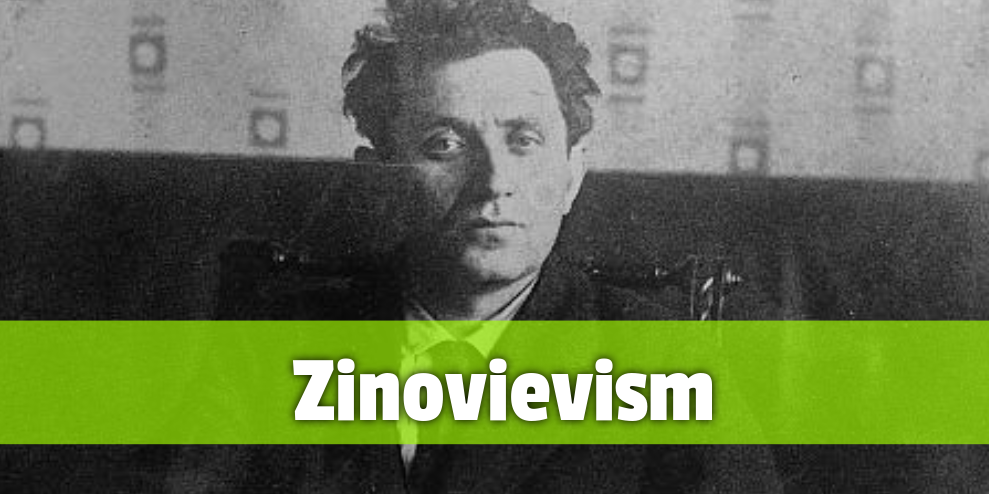Zinovievism

Centrist current that between 1924 and 1929, under the leadership of Grigory Zinoviev, paved the way for the destruction of the International and its sections with the organizational policies of "bolshevization" and "proletarianization" in a framework of "class against class" tactics that denied the need for transitional objectives in class struggles.
The three axes of Zinovievism
-
Bolshevization: a bureaucratic reinterpretation of "democratic centralism" that destroyed centralism by replacing it, in the name of functionality, with the centralization of decisions in executive bodies and management, thus creating organizations that are tailored to their needs. One of his spokesmen in Spain, later a Stalinist leader, argued this way:
The communist parties, unlike the social democrats, are essentially and fundamentally parties of action. The discussions among the members are not initiated by virtue of the democratic principle of "equality", but exclusively to strengthen, to reinforce the action of the vanguard of the conscious proletariat. That is why our parties are disciplined parties; one enters them, not to impose one's own point of view, but to devote all one's energies to the defense of the supreme interests of the party. That is why there is no room left in them for idle discussions. (...)
In all critical situations, the demand for democracy has been the lot of reformist elements, incapable of understanding and, above all, of applying or enduring the Bolshevik iron discipline, without which the working class cannot forge its class political party.
Gabriel León Trilla. Bourgeois Democracy and Proletarian Discipline, 1926
From 1925-26 the sections of the International would thus become organizations that followed the old Blanquist mould adorned by extreme militarism. In the party only the question of how best to implement the directives of the higher level is discussed, not the line to be followed. Zinovievism has paved the way for stalinism
The petty-bourgeois conception of democracy, which has penetrated even into the Communist Parties, enshrines a sacrosanct respect for "freedom of discussion", for the right to the free exercise of criticism. (…)
And when they are told that the Communist Parties are not created to worship democracy, when we reject the fetishism of "freedom of criticism and discussion," the anathemas and accusations arise.
When they are told that what is essential for us is the achievement of the political ends we set ourselves and that if democracy hinders us, prevents us from advancing, we restrict or suppress democracy, they label us, scandalized, as wanting to drown out human thought, and even if the scandalized one is some petty bourgeois who has entered the Party, they say that we want to "dictatorially and violently drown out the voice of the opposition".
"La Antorcha". Fractions and the Party, 1926
-
Proletarianization. Fetishistic belief that by introducing quotas based on the social origin of the members of certain executive bodies, the class nature of an organization is guaranteed... regardless of its program and political practice.
-
"Class against class" tactics. Although the communist left criticized this tactic as a denial of the united front, which it was, in reality it went much further: it was a denial of the very necessity of the party in the concrete struggles of the class, which it refused to give transitory goals that would serve its advancement by substituting them with the admonition of the necessity of revolution in the abstract, as if this were not the result of leaps in class consciousness from concrete struggles that escalate because the class learns how to aim at transitory goals to get ahead.